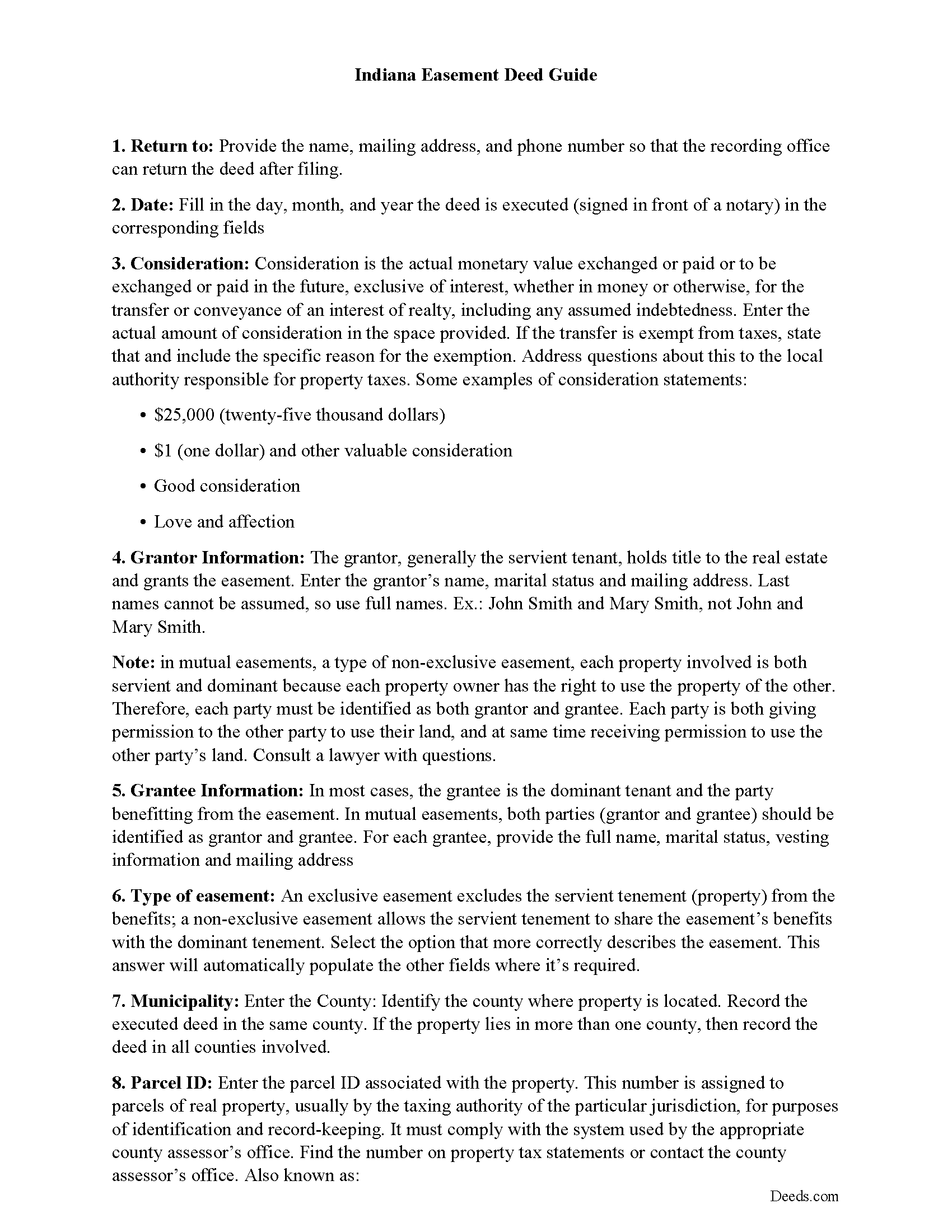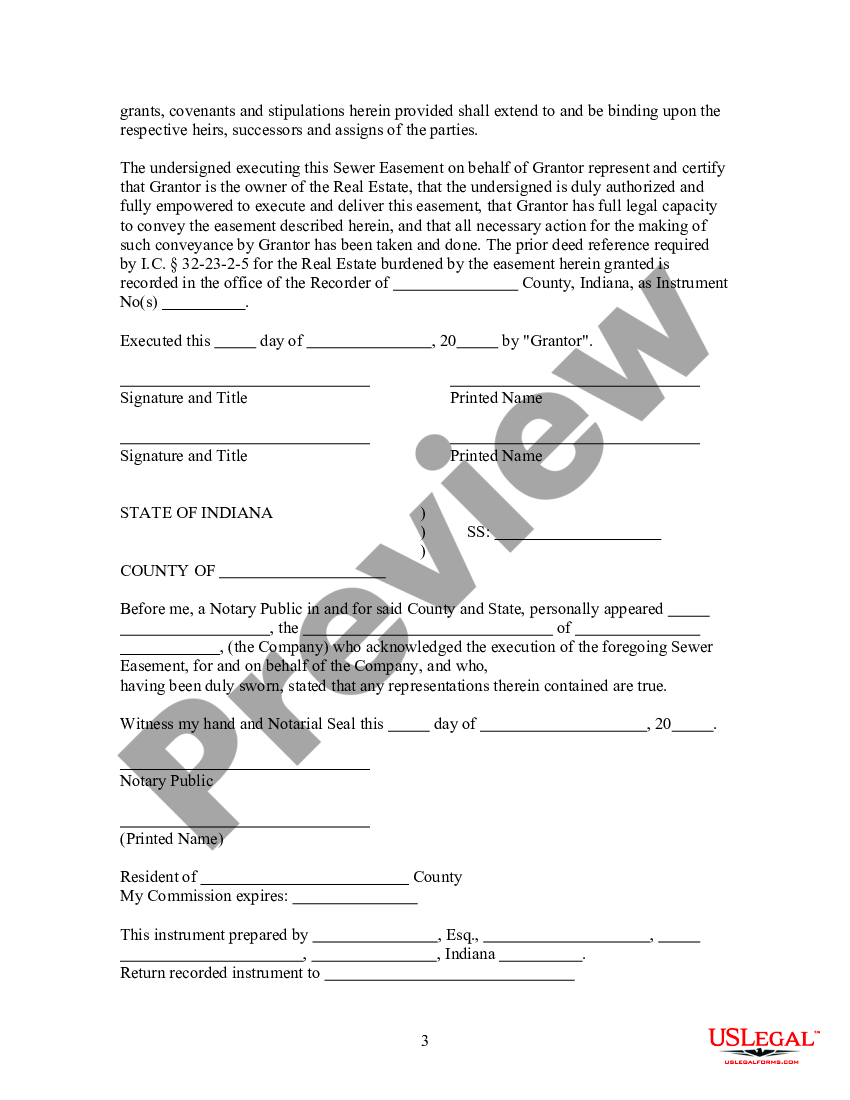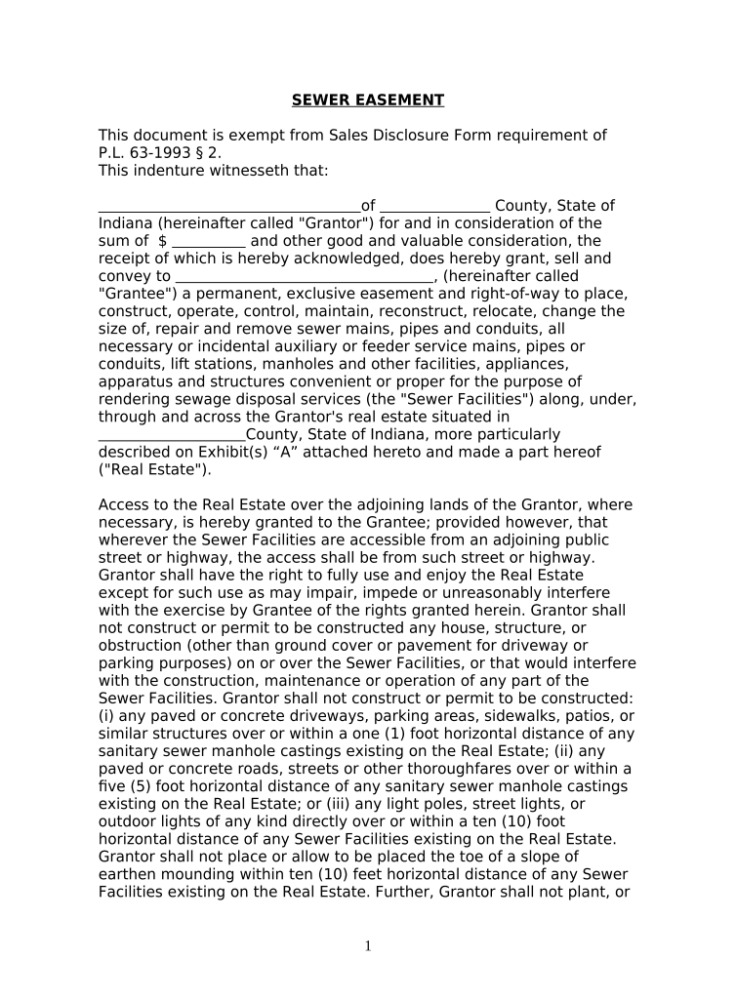What You Need to Know About Easement Laws in Indiana
Having an easement or granting one on your property is similar to letting someone in on a part of your life. Its not solely about the land; it involves recognizing the balance, the entitlements and obligations that come along with it. I recall visiting my uncles farm in rural Indiana where a neighbor had an easement to use a path through his fields. They both honored each others rights and it functioned smoothly because they comprehended their positions.
When you possess an easement, you gain specific privileges, but along with those privileges come obligations.
- Right of Access: You have the right to use the land as described in the easement. For example, if the easement is for a driveway, you can use it for that purpose without interference.
- Responsibility to Maintain: As an easement holder, you may be responsible for maintaining the area you use. My uncle’s neighbor, for example, made sure the path through the farm was always clear and didn’t damage the crops.
- Respecting the Landowner’s Rights: While you have access, it’s essential to remember that the land still belongs to someone else. You must use the easement reasonably, without causing unnecessary harm or nuisance.
- Not Expanding the Use: Easements are specific. If you have an easement to walk through a property, that doesn’t mean you can start driving heavy vehicles on it. Any expansion beyond the original purpose can lead to disputes.
Finding the right balance between these rights and duties can lead to seamless and hassle free easement agreements. It hinges on showing respect and empathy towards one another similar to how a strong relationship works.
Resolving Easement Disputes

Disagreements regarding easements can be quite exasperating, like attempting to piece together a puzzle that lacks some parts. When conflicts occur they often bring along a blend of emotions and legal intricacies. In my neighbors case she found herself in a disagreement with the utility company over an easement on her property. They intended to fell a few trees to reach the power lines but those trees held significance as they were planted by her late husband. It wasn’t merely a matter; it was something deeply personal for her.
To resolve these conflicts here are some steps you can follow.
- Open Communication: The first step is to talk it out. Sometimes, a simple conversation can clear up misunderstandings before they escalate. My neighbor managed to convince the utility company to trim the trees instead of cutting them down, preserving her memories and their access.
- Mediation: If talking doesn’t work, mediation can be a good next step. A neutral third party helps both sides reach an agreement. It’s less formal than court and often leads to a solution that everyone can live with.
- Legal Action: When all else fails, taking the matter to court might be necessary. This can be costly and time-consuming, but sometimes it’s the only way to resolve deep-seated issues. The court will look at the easement terms, usage history, and local laws to make a decision.
While conflicts can be tough to deal with, taking your time and using the approach can often lead to a resolution that acknowledges the needs and emotions of all parties involved.
Changing or Terminating an Easement

Easements are viewed as enduring arrangements but circumstances can shift and there are times when easements require adjustment. A friend of mine purchased a plot of land in Indiana only to discover an outdated easement for a road that no longer existed. It seemed illogical for anyone to claim rights over something that was no longer present.
If you want to modify or end an easement here are the steps you can take.
- Agreement Between Parties: The easiest way to change or terminate an easement is for both the landowner and the easement holder to agree. If everyone’s on the same page, they can sign a legal document to make the change official. That’s what my friend did, and it was a smooth process.
- Abandonment: If the easement hasn’t been used for a long time, it might be considered abandoned. However, proving abandonment in court can be tricky and often requires clear evidence that the easement holder intended to give it up.
- Merger: Sometimes, the easement can end if the landowner buys the property benefiting from the easement, merging the two lands together. This is rare but possible.
- Legal Action: If there’s no agreement or clear case of abandonment, you might need to go to court. A judge can decide to terminate the easement if it’s no longer necessary or if it’s causing undue burden on the landowner.
Modifying or ending an easement can be challenging, yet with the proper strategy and legal guidance it is achievable. The key lies in seeking a resolution that aligns with present circumstances rather than sticking to past arrangements.
Impact of Easements on Property Value
When I purchased my house in Indiana I was absolutely thrilled. However I soon discovered that one of my neighbors had the right to cross my land through an easement. At first I was concerned about how this might impact the value of my home. Would potential buyers be put off by it? The truth is that easements can influence property value in ways, both positive and negative depending on different factors.
Easements can have an impact on the worth of a property in the following ways.
- Positive Impact: Sometimes, easements can enhance value. For example, if there’s an easement that provides access to a river or lake, it can make the property more appealing to buyers who enjoy outdoor activities. In my case, my neighbor’s easement for walking to a nearby park added charm to my property.
- Negative Impact: On the flip side, easements can reduce value if they are perceived as a burden. A right of way that leads to constant traffic can make a property less attractive. Potential buyers may worry about privacy or noise, which could lower their offer.
- Market Perception: Buyers often have varied opinions about easements. Some may see them as a nuisance, while others may appreciate the connectivity they offer. This perception can greatly influence market demand and pricing.
- Legal Complications: If easements lead to disputes or legal issues, that can scare potential buyers away. Transparency in easement agreements is crucial. When I sold my first home, I made sure to clarify the easement details upfront, which helped the sale go smoothly.
Ultimately the effect of easements on property worth is subtle and heavily influenced by specific situations and viewpoints. Recognizing these aspects can assist buyers and sellers in making choices.
FAQs About Easement Laws in Indiana
Easement laws can be quite perplexing. I’ve had conversations with friends and family who were puzzled about the true meaning of easements and their impact on their lives. To shed light on these intricate legal matters here are some commonly asked questions.
- What is an easement? An easement is a legal right to use someone else’s property for a specific purpose, like accessing a road or utility lines. Think of it as sharing a path, but with legal backing.
- Are easements permanent? Generally, yes. But easements can be changed or terminated under certain conditions, like mutual agreement or abandonment.
- How can I find out if my property has an easement? Checking your property deed or county records can provide this information. I once had to dig through old documents to uncover easement details, and it was worth it to know what I was dealing with.
- Can I refuse access to someone with an easement? Not if the easement is legally binding. It’s important to understand the terms and limitations of the easement in question.
- What should I do if I have a dispute over an easement? Communication is key! If that doesn’t work, consider mediation or legal advice to resolve the issue amicably.
By tackling these frequently asked questions we can shed light on easement regulations and equip property owners with the knowledge to confidently navigate their rights and obligations.
Conclusion
In closing our journey through the nuances of easement laws in Indiana it becomes evident that grasping these principles is crucial for anyone with a stake in property ownership. Whether you’re a current homeowner, a prospective buyer or someone considering a real estate deal being aware of your rights and obligations can have a significant impact. I’ve come to realize that open communication and mutual respect play key roles when navigating easement matters. My experiences have shown me how these agreements can influence our lives unexpectedly ranging from enhancing the appeal of our properties to presenting unforeseen challenges along the way.
Keeping ourselves updated and taking action can help us handle the challenges of easements smoothly. They go beyond being mere legal jargon; they play a role in shaping our interactions with neighbors and the land we reside on. Whether you’re dealing with a disagreement or wanting to grasp how easements could affect your property always remember that having information on your side is the greatest support.


